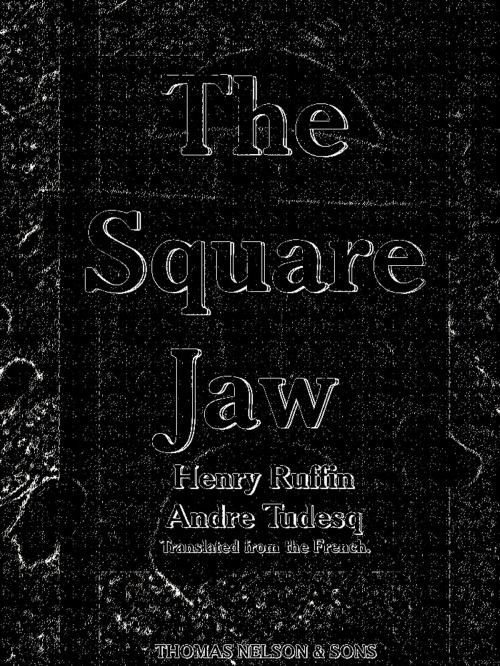| Author: | Henry Ruffin, André Tudesq | ISBN: | 1230000333580 |
| Publisher: | THOMAS NELSON & SONS | Publication: | April 1, 2015 |
| Imprint: | Language: | English |
| Author: | Henry Ruffin, André Tudesq |
| ISBN: | 1230000333580 |
| Publisher: | THOMAS NELSON & SONS |
| Publication: | April 1, 2015 |
| Imprint: | |
| Language: | English |
Example in this ebook
PART I. THE BATTLE OF THE ANCRE.
CHAPTER I. THE IMPROMPTU VICTORY.
The Ancre Front, 13th November.
You read the reports. The names of the places that have been taken, the calculations of the gains, the numbers of the prisoners, leave you cold. Words! words! It is on the field of battle, amidst the thunder of the guns and the magic glow of fires, that one should read the bulletins of victory.
This evening a heady, irresistible joy took possession of the Army. The prisoners were pouring in. The men were singing in their quarters. Upon a front 3-1/2 miles wide and nearly 1-1/2 deep our Allies had broken the German lines on both sides of the Ancre.
They have been giving me details of the battle. From hour to hour, here, in the midst of the troops, I am being told the incidents of the fighting. A risky privilege!
The despatches which come to us; the despatch riders who, at the utmost speed of their motor-cycles, bring us reports through the ruts and mud of the roads; the messages of the telegraph—everything has assumed a heroic quality. A feverish joy quivers in every face. Even the bell of the telephone follows, strangely, the measure of our heart-beats.
"We owe this victory to our quickness," a Colonel tells me. "This battle was an impromptu." The word is a picture. It is absolutely right.
At six o'clock—that is to say, in the grey light of the morning—after a short but annihilating artillery preparation, the divisions posted in the first line dashed forward through the fog and drizzle. The objective was three villages—Beaumont-Hamel and Beaucourt on the North bank of the river, and, on the South, Saint Pierre-Divion.
Let me tell you something of the country and its difficulties.
Swamps, soggy undulations formed by the trenches and the convoys, a wet, clayey soil, into which one sinks to the waist. Mud everywhere. Slime everywhere. One must slide down the funnels and holes that the shells have made. Thus the waves of the assault gather for their onset. The Germans had constructed defences formed of five lines of trenches, each alternated with at least three rows of barbed wire entanglements. The chevaux de frise and other obstacles covered, in places, a space over 200 yards wide.
On the one hand and on the other the banks of the Ancre ran up into bluffs like buttresses. Since his failure of the 1st of July, the enemy has cut among these natural protections deep trenches which wind along parallel to the course of the river. He has also set up on the slopes powerful machine-gun emplacements and blockhouses with mortars.
The English advance went like clockwork. The secret had been well kept; the evening before, the troops of this sector were quite unaware that an advance was to take place.
An absolute determination inspired both officers and men. The result of the attack was never in doubt. The trenches were taken by storm, together with those who manned them. It was a veritable harvest of men. The fourth line was taken at the point of the bayonet in eighteen minutes.
At eight in the morning we attacked the outskirts of the three villages. Beaumont-Hamel was the first to be taken, with its garrison. Before Beaucourt we were brought to a halt by machine-gun fire. Saint Pierre-Divion was outflanked. The artillery increased its range and cut short all counter-attacks.
To be continue in this ebook
Example in this ebook
PART I. THE BATTLE OF THE ANCRE.
CHAPTER I. THE IMPROMPTU VICTORY.
The Ancre Front, 13th November.
You read the reports. The names of the places that have been taken, the calculations of the gains, the numbers of the prisoners, leave you cold. Words! words! It is on the field of battle, amidst the thunder of the guns and the magic glow of fires, that one should read the bulletins of victory.
This evening a heady, irresistible joy took possession of the Army. The prisoners were pouring in. The men were singing in their quarters. Upon a front 3-1/2 miles wide and nearly 1-1/2 deep our Allies had broken the German lines on both sides of the Ancre.
They have been giving me details of the battle. From hour to hour, here, in the midst of the troops, I am being told the incidents of the fighting. A risky privilege!
The despatches which come to us; the despatch riders who, at the utmost speed of their motor-cycles, bring us reports through the ruts and mud of the roads; the messages of the telegraph—everything has assumed a heroic quality. A feverish joy quivers in every face. Even the bell of the telephone follows, strangely, the measure of our heart-beats.
"We owe this victory to our quickness," a Colonel tells me. "This battle was an impromptu." The word is a picture. It is absolutely right.
At six o'clock—that is to say, in the grey light of the morning—after a short but annihilating artillery preparation, the divisions posted in the first line dashed forward through the fog and drizzle. The objective was three villages—Beaumont-Hamel and Beaucourt on the North bank of the river, and, on the South, Saint Pierre-Divion.
Let me tell you something of the country and its difficulties.
Swamps, soggy undulations formed by the trenches and the convoys, a wet, clayey soil, into which one sinks to the waist. Mud everywhere. Slime everywhere. One must slide down the funnels and holes that the shells have made. Thus the waves of the assault gather for their onset. The Germans had constructed defences formed of five lines of trenches, each alternated with at least three rows of barbed wire entanglements. The chevaux de frise and other obstacles covered, in places, a space over 200 yards wide.
On the one hand and on the other the banks of the Ancre ran up into bluffs like buttresses. Since his failure of the 1st of July, the enemy has cut among these natural protections deep trenches which wind along parallel to the course of the river. He has also set up on the slopes powerful machine-gun emplacements and blockhouses with mortars.
The English advance went like clockwork. The secret had been well kept; the evening before, the troops of this sector were quite unaware that an advance was to take place.
An absolute determination inspired both officers and men. The result of the attack was never in doubt. The trenches were taken by storm, together with those who manned them. It was a veritable harvest of men. The fourth line was taken at the point of the bayonet in eighteen minutes.
At eight in the morning we attacked the outskirts of the three villages. Beaumont-Hamel was the first to be taken, with its garrison. Before Beaucourt we were brought to a halt by machine-gun fire. Saint Pierre-Divion was outflanked. The artillery increased its range and cut short all counter-attacks.
To be continue in this ebook















